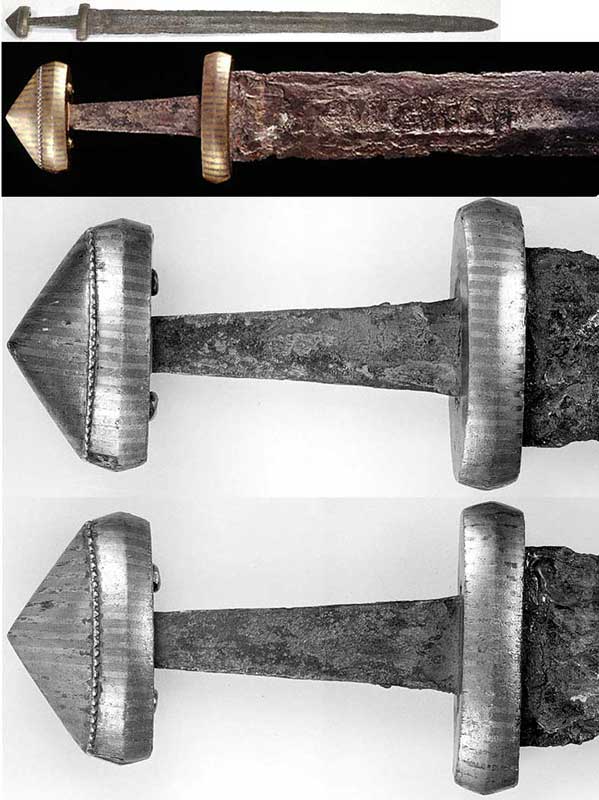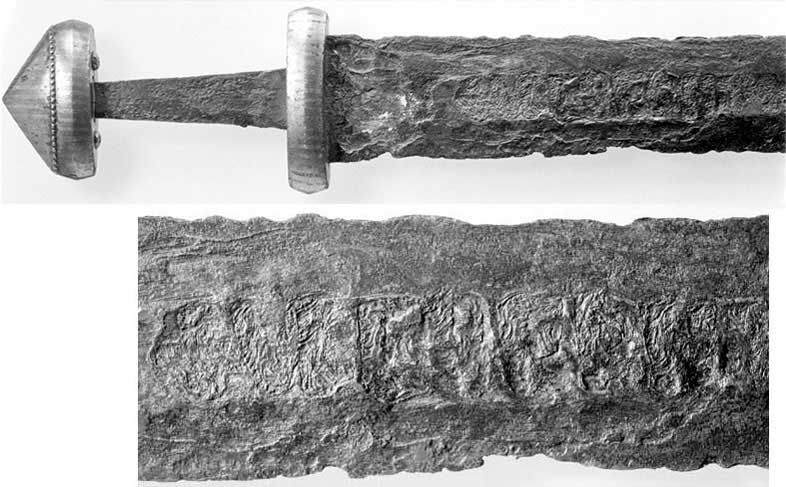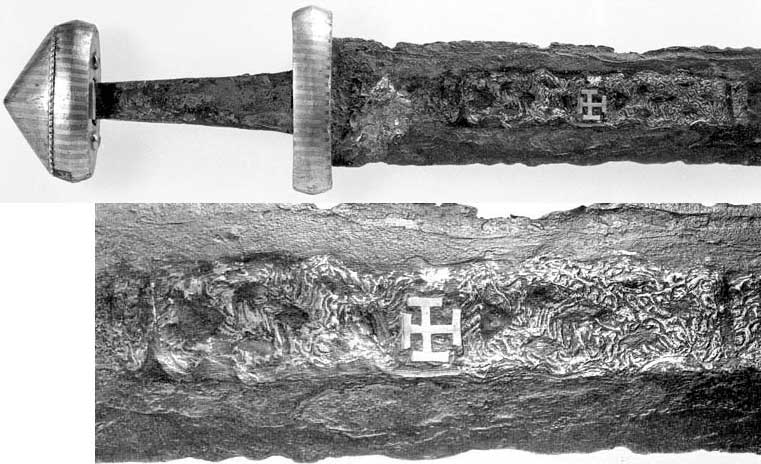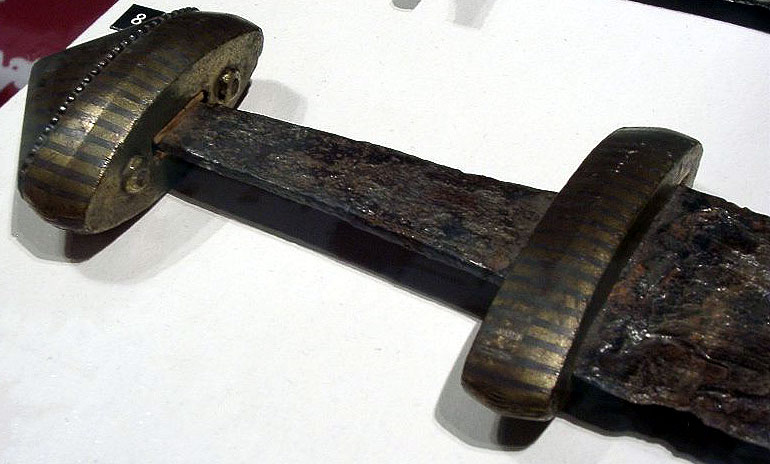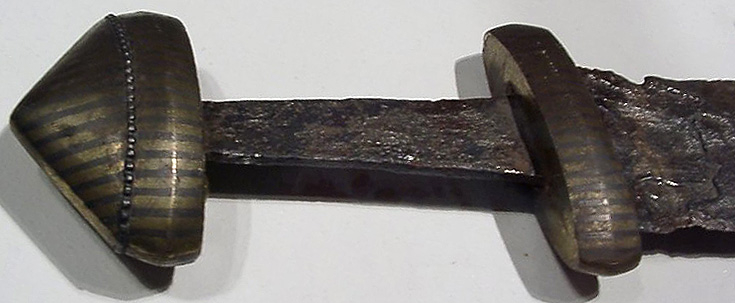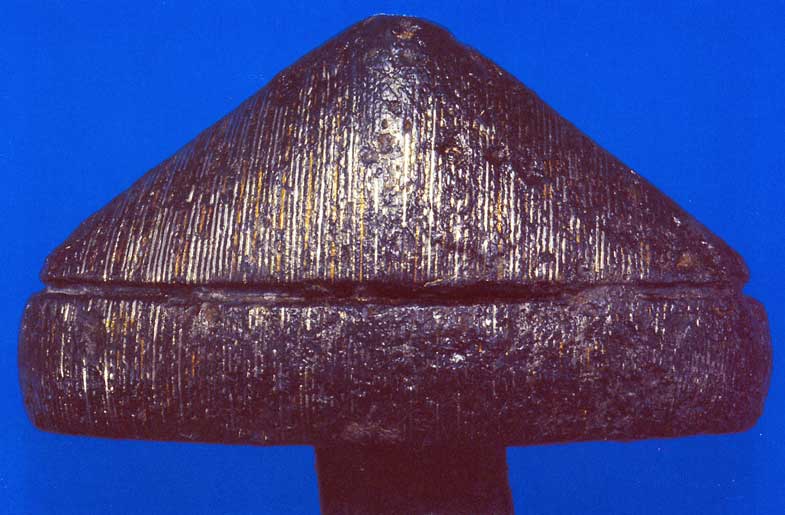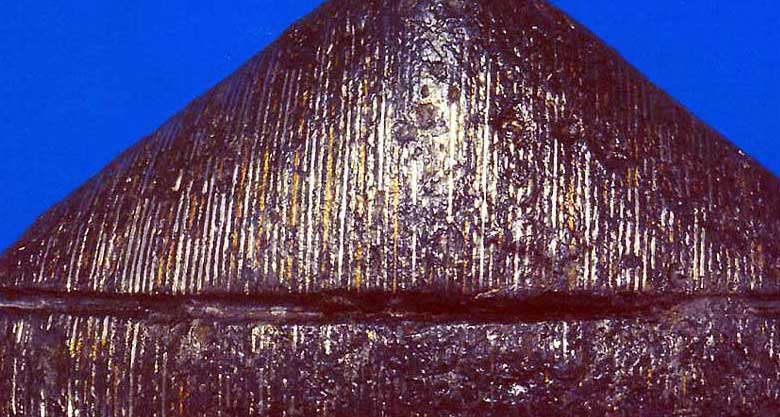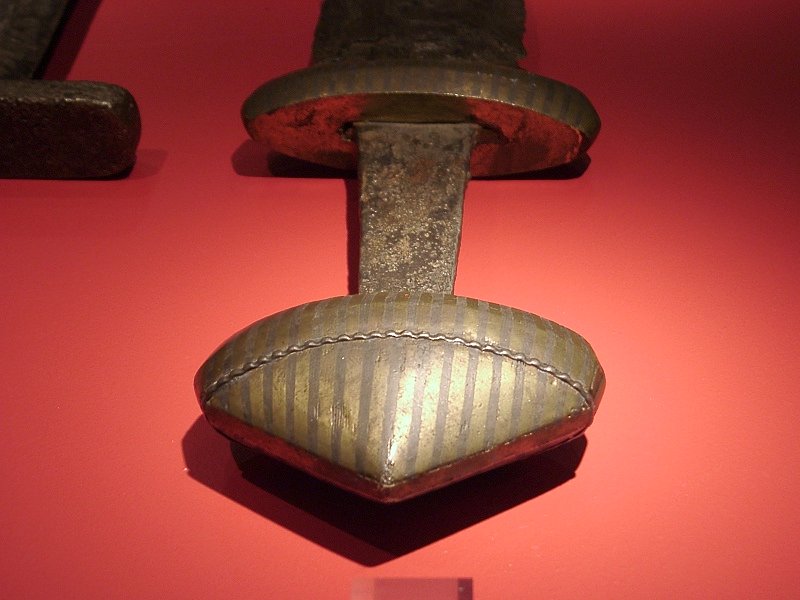Posts: 145 Location: Oakland, CA
Sat 19 Nov, 2005 10:23 pm
Pardon me for jumping in late!
The sword at the top of this thread was published in 1986, by (I believe) the conservator – J. Ypey himself. If you can scare up a copy of “Drei neuerworbene Waffen im Rijksmuseum van Oudheden: ein Ulfberht-Schwert, ein Katzbalger und ein Linkhanddolch” from Oudheidkundige Mededelingen uit het Rijksmuseum van Oudheden te Leden 66, 1986 p. 139-151 (also as a reprint from ROB, Overdrukken nr. 290), you can read all about it in German (why German and not Dutch, I dunno).
My German ain’t so great, but he does say: “Knauf und Knaufstange sind durch ein Messingperlband von einander getrennt” which I translate as: pommel and pommel bar are separated by a band of beaded brass (Messing = brass, but really ‘copper alloy’ would be more appropriate in this context?). The Vikings/Franks used beaded wire, so that may be what we have here, however he does not mention it being silver gilt which is what it looks like in the photo. From the photo, it does look like a plate with ornamented edge, but I can’t imagine a smith putting that much metal in between there where it won’t be seen, even if it was ‘brass’ not silver.
The overall decoration is “Silber und Messing tauschiert” and is inlaid in the same manner as the second pommel in the thread – lots of very tiny lines – only in the Ulfbehrt, the metal is spread out over the surface between the grooves. “Vier (4) Rillen mit Silber folgen fünf (5) Rillen Messing” which can be seen in some of the photos – the visible stripes are made up of multiple lines. On many hilts, these are spaced two per millimeter or less, but if you sharpen your gravers correctly the lines can be cut and inlaid without getting too crosseyed, and just in case you were a far-sighted Viking, lenses were found on Gotland, see for example:
http://news.bbc.co.uk/1/hi/sci/tech/702478.stm
Other interesting things about this sword – 1554 grams, so less rusted away than most, and 99.6 cm long by 6.48 cm broad with the standard 0.5 cm thickness, so this was a biggun for sure. Grip length, ~10 cm. “Der besonders gute Erhaltungszustand des Exemplars resultiert aus seiner Lage unterhalb des Grundwasserspiegels” um, perhaps: well preserved due to it’s lying below the watertable? Found in 1983, not too long ago.
Jeff
